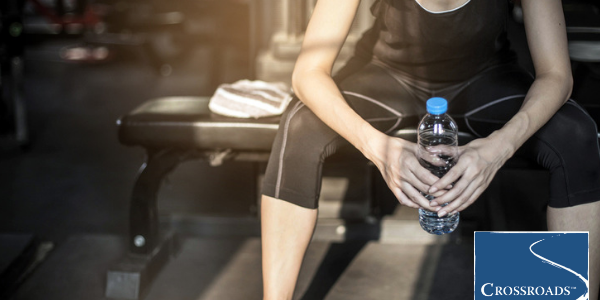Participation in sports is a wonderful way to stay active and promote better health. However, as competition heats up, it may pose a greater risk for eating disorders in athletes, and this can be especially true for females who may already be overly conscious about their bodies. Athletes can face a lot of stress to improve their performance, and they may feel like controlling their eating and weight is the way to do it.
However, disordered eating can actually have a negative impact on their performance and make them more susceptible to injury or illness. It is essential that parents, coaches, teachers, and peers be alert for warning signs that may indicate there is a problem in order to intervene before things become more serious.
Benefits of Sports
Sports can be a beneficial part of anyone’s life. They instill confidence and self-esteem, teach teamwork, build friendships, develop new skills, and create a sense of community. Athletes often have good time management and focus. In addition, staying physically active can help to tone and strengthen the body and reduce risk of disease. Many people start participating in sports from the time they are young and continue into college and adulthood.
Change the Focus
From a young age, coaches and parents can help prevent eating disorders in athletes by changing the focus of discussion from appearance to individual strengths. Be cautious about any comments that center on weight or how an athlete looks. Instead, compliment individuals on their ability to control the ball, the power with which they kick or throw, their flexibility, or their agility.
As females get older, they tend to be more body conscious and concerned about how their body is changing. Show them how to use these changes to their advantage and remember that muscle weighs more than fat. Gaining some weight should not be reprimanded; along with it they may be gaining strength and muscle and keeping their body healthy.
Promote Education
Engaging in regular conversations about healthy eating is also beneficial for reducing risk of eating disorders. Talk about how nutritious foods fuel the body and give it the energy it needs to perform. Discuss the risks of undereating (or overeating) and not giving the body what it needs to function. Eating disorders can contribute to a variety of challenges including headaches, weakness, heart and gastrointestinal issues, problems concentrating and focusing, and much more. Rather than improving performance, they can actually be hindering it.
Teach athletes how to create appropriate meal and exercise plans that meet their body’s needs with training, competing, performing, and physical development. Ensure that they are staying hydrated and listening to their body. Show how a well-balanced diet can improve their abilities and how poor nutrition can have a negative impact. Promoting good mental health is critical as well, as depression and anxiety can also contribute to eating disorders.
Recognize Warning Signs
Be alert for signs that may indicate someone is struggling with an eating disorder. This could include things such as:
- Skipping meals or restricting food intake
- Being overly concerned about weight
- Only eating certain foods
- Exercising excessively after eating or instead of eating
- Increased fatigue
- Unhealthy weight loss
These are just a few of the red flags that may accompany eating disorders in athletes. They can be a wake-up call that something needs to change and the person may benefit from treatment. Disordered eating may begin in adolescence but become more noticeable or problematic as individuals progress into early adulthood. By engaging in a treatment program tailored to their needs, athletes can develop a healthier relationship with food and continue to be physically active, just in a way that is safer for their well-being.
Approximately 95% of eating disorders occur in women, and Crossroads offers treatment that is aligned with the challenges females face. There are both residential and outpatient programs available to help women get on the path to recovery and healing. Being athletic does not have to include eating disorders, but if these issues do arise, know that there is help available at Crossroads.


















